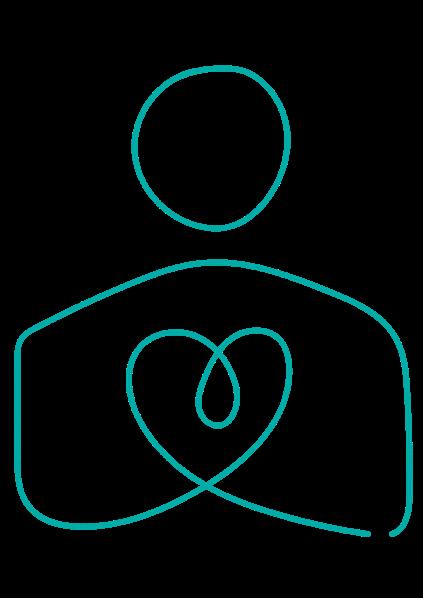






For our summer issue of Lepra News, we invited Becks Hill to write about her experiences of joining the organisation, and the projects she has visited in India and Bangladesh.

months in as the new Director of Programmes and Advocacy, I have been lucky enough to have visited programmes in India and Bangladesh, and attend a high-level partner meeting in Valencia, focussed on innovation and support a workshop in Hyderabad.

6

It really helps understand the context if you can visit a programme in operation, and experience first-hand the services that we at Lepra support.
On my first visit to India, I was lucky enough that it coincided with International Women’s Day and Holi - the festival of colour. The day was marked by attending a self-support group for women affected by lymphatic filariasis.
Accompanied by my colleagues Radhika and Kamesh, we learnt of the challenges facing the women in an evolving context whereby the erosion of traditional family values has meant that some older women are left alone to contend with the disease themselves whereas before they could lean on family members to support them. It was saddening to hear of their daily struggles, feelings
our spirits were lifted as a local traditional singing group arrived and serenaded us, culminating in us throwing coloured powder at each other to celebrate Holi.
Lepra organised a 5-day training event in Hyderabad, convening colleagues from Bangladesh, India and the UK. Fully interactive and participatory, this was the first time that colleagues from all countries were all in the same room for a very long time.
The first 3 days were dedicated to jointly developing an organisation-wide Theory of Change (ToC) and Results Framework (RF). The workshop focussed on laying the foundations for our new strategic plan, which will underpin our direction of travel in the coming years.
The final 2 days we focussed in on our mapping out how we will develop the new strategy in a consultative way ensuring that all stakeholders have their say in its development.
We plan to formally launch our new strategic plan in early 2024, during our centenary year. We are

In the spring of 2023, Professor Diana Lockwood and photographer Tom Bradley travelled to Bangladesh, to continue the landmark documentary series, telling the story of real people affected by leprosy and changing perceptions of this widely misunderstood disease.

In May 2023, following his recent return from Bangladesh, photographer Tom Bradley spoke to us about the continuation of the New Face for Leprosy project.
As a neglected tropical disease which has attracted prejudice and discrimination for centuries, images of people affected by leprosy often have the most severe aspects of the disease displayed. Serving only to reinforce widely held misconceptions, fears and beliefs, the ‘New Face’ project, seeks to challenge our perception and understanding of leprosy. By showing people affected by leprosy experiencing normal life, working and having a family, we learn to see past the disease and find a more empathic aesthetic.
Tom first visited Bangladesh in 2013, and knows the country well. He has travelled extensively and has developed a deep affinity towards the people and culture. He has also seen first hand the challenges people face accessing healthcare in this densely populated country.
“There are a lot of problems still in terms of healthcare and making sure that it reaches the poorest people. It tends to be a privatised system, meaning wealthy people can send loved ones to a couple of very specialist hospitals in Dhaka. As such, good health care is distributed very thinly in
Lepra is a non-governmental organisation (NGO), and has been working to find and assist people affected by leprosy since 1924.

Since that time, Lepra has had two defining characteristics. Firstly, we are secular - a positive decision to favour no one and everyone. Secondly, we prioritise being evidence-led.


Leprosy is a communicable disease, caused by a bacterium, which affects the skin and peripheral nerves of

the country and many of the NGOs work to support those healthcare systems.”

When asked about how the situation has changed over the last decade, Tom highlighted the eastern ‘tea garden’ area as a particular cause for concern.
“Bangladesh, is generally very, very flat. One of the slightly less flat places however, is where a lot of the tea gardens are, and you have a lot of tea workers that tend to be Hindu communities and they have very ‘specific’ working conditions and places where they live. I think it’s fair to say there are ‘controversial’ working conditions that are kept by the companies that own the tea gardens, some of which are British.
They’ve always had leprosy in those areas, but very recently it’s been noticed that there’s been a sharp rise. And so if this carries on, this small area of Bangladesh is likely to be one of the most endemic places in the world for leprosy.”
To watch the full interview with Tom, and to find out more about Lepra’s work in the tea gardens of Bangladesh, visit:

www.lepra.org.uk/events/detail/new-faces-ofleprosy
people affected. It can result in severe disability, prejudice and even cause blindness. Leprosy remains one of the least understood and most widely ignored diseases in the world. Millions of people are affected, with numbers continuing to rise. If left undiagnosed or untreated, leprosy can cause life-changing disabilities.
Leprosy can incubate in a human body anywhere between 6 months to 20 years. As a result, it is often difficult to diagnose the disease until it has already caused severe damage.
Working in India and Bangladesh, we find, diagnose, treat and rehabilitate people with leprosy. Specialists diagnose leprosy using a skin test patch for anaesthesia, slit skin smears, and non-invasive sensory investigations.
We also work tirelessly to fight the prejudice and discrimination people affected by leprosy face in their daily lives.
Our vision is a world free from prejudice and disability due to leprosy.
Mental Health Week in May, serves to remind us of the emotional cost of healthcare inequality and the often invisible impact a diagnosis can have on some of the world’s most vulnerable people.
As a person-centred organisation, Lepra profoundly understands the value of positive mental health



Through nearly 100 years of experience and research, we have driven a transformation in the understanding of how emotional health can have a direct impact on a person’s treatment and recovery from leprosy and lymphatic filariasis (LF).
Lepra’s community-based research has uncovered the fact that as many as one-in-two people will develop moderate to severe depression and anxiety as a result of a diagnosis. A shocking statistic, which has led to a significant shift to the provision of emotional health care, as a standardised component within our programme design across India and Bangladesh.
Programmes such as Mental Motivators, SAMARATH, PROSHANTI and UPLIFT

are paving the way to the development of new evidencebased initiatives, and setting a new standard of community-led emotional support for people affected by leprosy and LF.
This spring, a new project will commence, called Mind to Heart

In partnership with the Sasakawa Health Foundation, Lepra will be equipping the Bogura Federation to take a leading role in the provision of services in the district, with a focus on physical, social, economic, and emotional well-being. The aim is to create long-term and sustainable support, through a communityled approach, which in turn will enable us to reach more vulnerable members of the community
12 new Mental Motivators have been recruited from the Bogura district, and are receiving training from Counselling Psychology Professor Shaheen Islam, from the University of Dhaka, who explains:

Throughout
“There is no health without mental health’- Adequately trained Motivators will extend mental health support to people affected. They will be able to connect with care and compassion, without judgement or fear. In time of trauma and vulnerability, supporting people’s mental health and providing triage for more immediate needs, will reduce the possibility of developing more serious conditions in the future.”

project, Bogura’s team of Mental Motivators will be supported by professional counsellorBabita Akter Nodi.

In May, we spoke to Nodi about her involvement in the project, and how she saw mental health as a crucial element of people’s overall health:
“My role is to support patients with mental health problems, and I support a team of local Mental Motivators. I visit patients at home and refer patients to hospitals if needed. As a referral mechanism, I communicate and network with Bogura District Hospital specialise in working with more urgent mental health issues.
Jeba Khatun is aged 43 and lives in a village in the Pabna District of Bangladesh.
At the age of 18, shortly after getting married, Jeba started showing symptoms such as white patches appearing on her skin. She was soon referred to a local clinic, where she discovered she had leprosy.
The social and emotional impact diagnosis caused her a great deal of anguish, in what must have felt like a helpless situation. She was abandoned by her husband and was facing isolation within her community
It was a dark time for Jeba, which left her coping with not just the physical implications of a leprosy diagnosis, but also a deterioration of her mental health, resulting in severe anxiety and depression.
With ongoing support
In 2014, Jeba joined her local ‘Federation of People Affected by Leprosy’, which gave her an opportunity to help other people within the community who are also facing hardship as a result of their leprosy diagnosis.
She had found her new calling in life, and soon trained to become a ’Mental Motivator counsellor’ for Lepra. This enabled her to provide emotional support for many more people who are struggling with their mental health following a leprosy diagnosis.
In 2023, Jeba became the President of Pabna District Federation, which brings together over 111 selfsupport groups, representing the most vulnerable communities in central Bangladesh.


Jeba says she is happy to have followed her dream and can now help even more people affected by leprosy come through the emotional impact of their diagnosis. More recently, Jeba has also become a guest speaker at events such as the ‘National Conference for People Affected by Leprosy’ held in Dhaka, speaking about her incredible journey of recovery.
She has found the power of her voice, which she now uses to advocate for neglected members of the community, who are also experiencing the physical and social implications of leprosy.
When discussing our health we usually think of first of physical health. But people cannot be said to be happy only if they are ‘physically healthy’. People are composed of body and

The ability to realise our potential as a humanbeing, to engage in creative and productive activities, to find balance with the surrounding pressures of daily life, and to recognise our positive mental

We have to face different events and situations every day. Some of these events are positive and create happiness in our mind, while some events can bring sadness, anger or anxiety in our mind.
It is important we actively seek to maintain positive mental health through every stage of our lives. Dark clouds of sadness, depression and despair can at times affect anyone, but with the right support, we can overcome these difficult times.
When we are conscious of how life’s trials and tribulations impact our emotional health, we can become more resilient which enables us to overcome the difficult situations and recover more effectively.”



Every year, a small army of amazing individuals take on the gruelling 26.2 mile London Marathon in support of Lepra’s vital work in India and Bangladesh. In this issue of Lepra News, we speak to two inspirational members of ‘Team Lepra 2023’ to find out what motivated them.


What inspired you to run the London Marathon? and started running again 4 years ago, after probably 30 years of little exercise. I wanted to get fit, but I need motivation and goals to get me out running. When Covid struck running also became important as a way to cope and deal with the mental challenges of that period. I was inspired to try for the London marathon as its not only an iconic run but because it is so important for charities.
Why did you want to run and raise money for Lepra? I wanted to support a charity involved in projects in the developing world as I had lived and worked in Nepal for 8 years. At that time my wife (who was a physio) and I, had become aware of challenges around leprosy diagnosis and support in South East Asia. In many ways it had struck me as a disease that is too easily overlooked. When I saw that Lepra were looking for London marathon runners and as I found out more about their work in India and Bangladesh, I decided that they were the charity I wanted to run and raise money for.
Did you ever have moments of doubt during your journey? In many ways the hardest part of the journey is the training, on cold icy, rainy, windy winter mornings, wondering if you are going to make it to the starting line. I was fine though until a couple of days before when my feet and toes started cramping and giving me quite a lot of pain, so on the day I was unsure if I would make it past the first few miles. Fortunately the pain disappeared and I was okay up until about 23 miles, when I started to feel quite sick, and had to stop. A few other runners checked I was okay which was nice of them, and after a minute or so I was able to run the final stretch!
How did it feel to cross the finish line after 26miles? Crossing the line in just over 4 hours 34 minutes, my immediate sense was one of relief that I had made it through the last few miles. After a few minutes just getting through the sheer exhaustion it felt awesome just to reflect on the whole experience. I am so thankful to friends and family for the encouragement but especially for the support they gave to my Lepra fundraising challenge. Completing the run was very satisfying and I will always remember it, but knowing that this run will mean something more to others through the important work that Lepra is doing, is the aspect that makes me most happy!
There’s a whole world of challenges out there for you to explore, from scaling mountains to rafting tempestuous rapids, all whilst raising money for Lepra.

Organising your own event means that we avoid any upfront costs and administration fees, allowing us to ensure that all of your sponsorship money goes towards our work helping children, women and men affected by diseases like leprosy and LF.
You can take it on as a team or adventure solo through our partner Charity Challenge.

They will sort our the logistical bits and our events team will always be on hand to help you with your fundraising, so that you can concentrate on your goals!
Email us to find out more: events@lepra.org.uk

“There were so many charity runners, and charities lining the streets and it was great to find Lepra along the way near Rotherhide and be given some jelly babies to keep me running”




What inspired you to run the London Marathon? I had a fairly serious health scare last year which turned out to not be life threatening, but it made me want to live life to the full and try and do all the things on my bucket list, which included running a marathon (even though I actually don’t enjoy running!).

Why did you want to run and raise money for Lepra? I have huge respect for the work that Lepra do in raising awareness and the prevention, treatment and support for people affected by the disease. I know that leprosy is not something that is often at the ‘front of mind’ for people living in the UK. Running for Lepra is something that I am incredibly proud to have been able to do and it has opened up conversations with my friends, family and colleagues that I hope will have raised awareness.


Did you ever have moments of doubt during your journey? The furthest I have ever run previously, was a 10k back in 2003. When I started training in January this year I badly tore my meniscus 7k into my first serious run, and despite a lot of physio I was unable to run at all prior to the marathon, other than a few fast 5k walks on a treadmill. I tried an outdoor run on the Thursday before the Marathon and had to stop after 5 minutes. Despite a cortisone injection in my knee, I still didn’t think I would actually be able to get round, but the crowd energy carried me, and I managed to jog to Tower Bridge before having to limp the last 14 Miles. I was so glad that I didn’t pull out, and pleased to have made it to the finish line.
How did it feel to cross the finish line after 26miles? A few more tears of happiness after crossing the line then a few more when I realised that the rumour that there would be a free pint of London Pride waiting for every finisher was not in fact true and just a motivational ploy from some well-wishers on route (it worked though as I couldn’t stop thinking about that pint for the last
A HUGE thank you to all of our 2023 London Marathon runners, who have collectively raised an amazing £9,331 which will help us support even more vulnerable people in endemic areas. Also, a special thank you for their support and sponsorship of 2 places.
“I can honestly say that I have never felt so much positivity, kindness and good will from so many strangers in one place. It’s actually making me feel quite emotional just talking about it!”
Legacy giving makes the world a better place, for generations to come. Our vision is a world free from prejudice and discrimination due to leprosy, and a gift in your will can bring

Leaving a gift in your will is a very personal decision, and we would like to assure you that a gift of any size makes a difference to people in the most difficult of circumstances. Even just 1% of your will can change lives.
leaving a gift
A gift in your will today, will make a true difference to the lives of people long into the future.

Does a gift in my will really make a difference?
Most definitely! The people you can read about in Lepra News are some of the many thousands we are helping. Legacy gifts mean we can help people living with prejudice and disability and directly improve their lives.
If I decide to leave a gift in my will, can I specify what my gift is used for?

Absolutely. If you would like to specify that your gift is used for a particular project, or in a particular location, please just ask us for further details and we will be able to help. Alternatively an “open or unrestricted” gift allows us to respond quickly and effectively to the needs of the people we work with.
Do I need to be wealthy to leave a gift?
Not at all. Anyone can leave a gift of any size in their will. You certainly don’t need to be wealthy to have a life changing impact.
We’re grateful to anyone who wants to help change lives.
How does Inheritance Tax affect my will?

Gifts to charities in wills are exempt from tax. In fact, giving some of your money to charity could help you offset the Inheritance Tax burden on your estate.
For further information please speak to your solicitor of financial adviser.


If you have any questions or would like to receive legacy guide information request box on the enclosed donation form